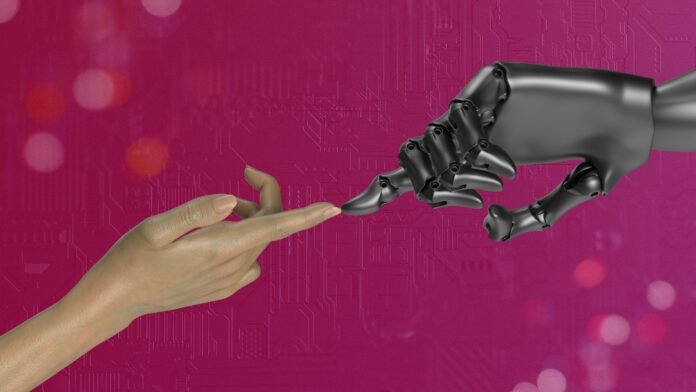How AI Is Transforming the Future of Remote Work
July 4, 2025
As remote work cements its place in the modern employment landscape, artificial intelligence (AI) is emerging as a transformative force reshaping how teams operate across continents and time zones. From intelligent productivity tools to AI-driven hiring and employee support systems, the technology is revolutionizing remote collaboration, efficiency, and engagement.
Smarter Collaboration Tools
AI-powered collaboration platforms like Microsoft Teams, Zoom, and Slack have integrated intelligent features such as automated meeting transcription, real-time language translation, and task summarization. These tools not only reduce manual administrative work but also bridge communication gaps among globally dispersed teams.
“AI allows us to meet across time zones and languages as if we were in the same room,” said Linda Morales, CTO of a San Francisco-based software firm. “We’ve seen a 40% increase in productivity since adopting AI-enhanced tools.”
Personalized Workflows and Automation
Remote employees now benefit from AI that learns their work habits and suggests optimized workflows. Virtual assistants like Google Assistant, Otter.ai, and Notion AI automate repetitive tasks—scheduling meetings, drafting emails, and even generating reports—freeing up time for higher-level thinking.
Additionally, AI-driven project management software can now predict bottlenecks, recommend resource allocations, and forecast deadlines with high accuracy. Tools such as Asana and Trello are already implementing these smart features.
Revolutionizing Hiring and Onboarding
Companies embracing remote work are using AI to streamline virtual hiring processes. Applicant tracking systems (ATS) with AI capabilities can screen resumes, assess candidate fit, and even conduct preliminary video interviews using sentiment analysis and facial recognition (though the latter raises privacy concerns).
Onboarding, too, has been reimagined. New hires are guided by AI chatbots through company policies, training modules, and Q&A sessions, ensuring a consistent and scalable onboarding experience regardless of geography.
Addressing Burnout and Employee Well-being
Perhaps one of the most impactful areas of AI in remote work is mental health and well-being. AI tools monitor digital behavior patterns—like overworking or lack of engagement—and flag early signs of burnout. Platforms such as Viva Insights and WellbeingAI offer personalized nudges to encourage breaks, mindfulness, and healthy work habits.
“AI acts like a wellness coach,” noted HR specialist Marcus Chen. “It reminds employees to take breaks or even suggests wellness resources based on behavior.”
Privacy and Ethical Considerations
Despite the advantages, the rise of AI in remote work brings challenges. Concerns around employee surveillance, data privacy, and algorithmic bias are increasingly under scrutiny. Experts urge businesses to balance innovation with transparency and ethical use.
“Employers need to ensure AI is augmenting—not micromanaging—human work,” said Dr. Tasha Reed, a digital ethics researcher. “Consent and clear communication are vital.”
Looking Ahead
As the remote workforce continues to grow, AI will play an even greater role in redefining work. Future innovations may include immersive AI-driven virtual offices, predictive career coaching, and deeper human-AI collaboration.
In the words of futurist Jamal Evers, “The remote workplace of tomorrow won’t just be digital—it will be intelligent.”




